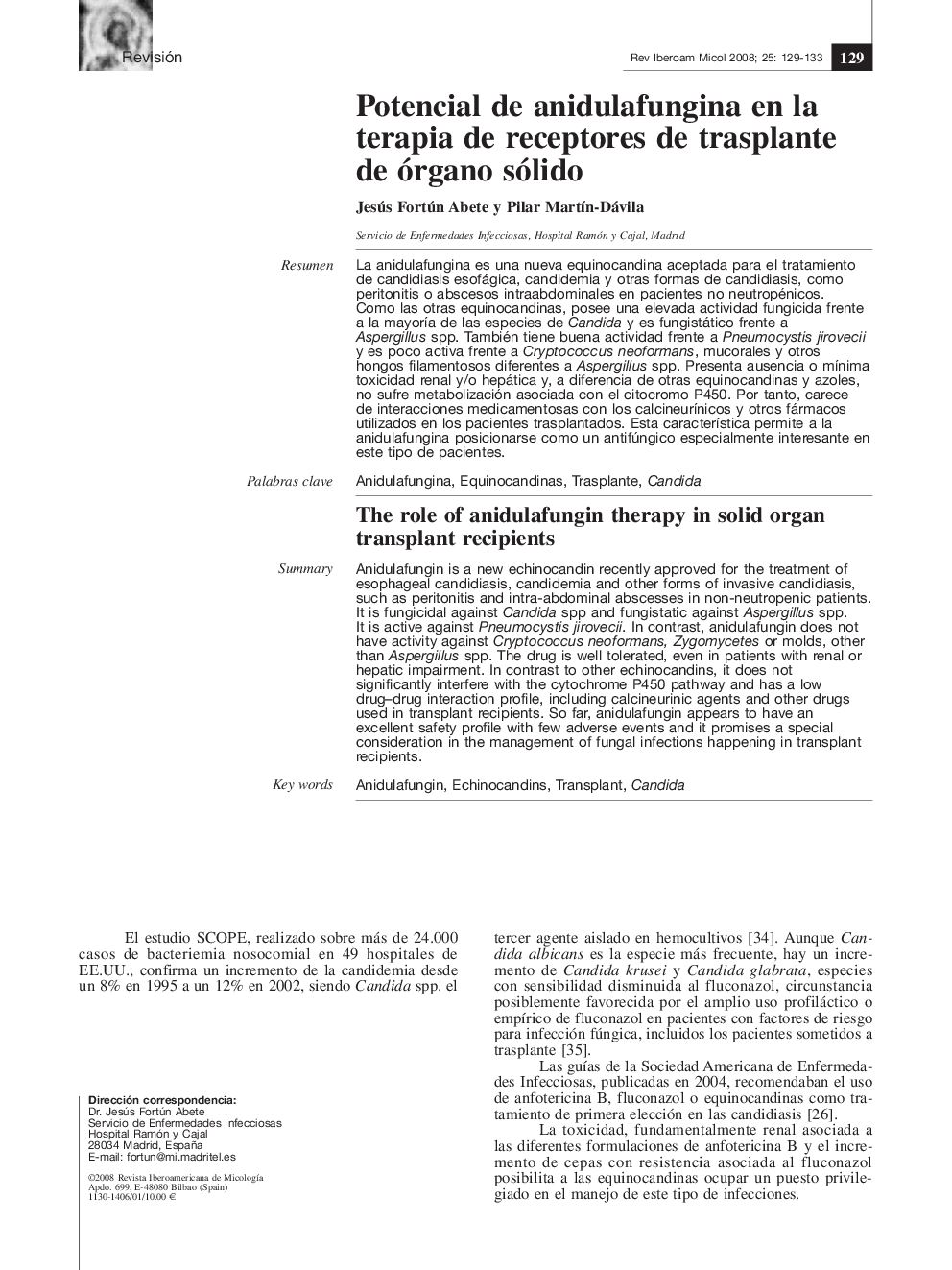| Article ID | Journal | Published Year | Pages | File Type |
|---|---|---|---|---|
| 3419169 | Revista Iberoamericana de Micología | 2008 | 5 Pages |
ResumenLa anidulafungina es una nueva equinocandina aceptada para el tratamiento de candidiasis esofágica, candidemia y otras formas de candidiasis, como peritonitis o abscesos intraabdominales en pacientes no neutropénicos. Como las otras equinocandinas, posee una elevada actividad fungicida frente a la mayoría de las especies de Candida y es fungistático frente a Aspergillus spp. También tiene buena actividad frente a Pneumocystis jirovecii y es poco activa frente a Cryptococcus neoformans, mucorales y otros hongos filamentosos diferentes a Aspergillus spp. Presenta ausencia o minima toxicidad renal y/o hepática y, a diferencia de otras equinocandinas y azoles, no sufre metabolización asociada con el citocromo P450. Por tanto, carece de interacciones medicamentosas con los calcineurínicos y otros fármacos utilizados en los pacientes trasplantados. Esta característica permite a la anidulafungina posicionarse como un antifúngico especialmente interesante en este tipo de pacientes.
SummaryAnidulafungin is a new echinocandin recently approved for the treatment of esophageal candidiasis, candidemia and other forms of invasive candidiasis, such as peritonitis and intra-abdominal abscesses in non-neutropenic patients. It is fungicidal against Candida spp and fungistatic against Aspergillus spp. It is active against Pneumocystis jirovecii. In contrast, anidulafungin does not have activity against Cryptococcus neoformans, Zygomycetes or molds, other than Aspergillus spp. The drug is well tolerated, even in patients with renal or hepatic impairment. In contrast to other echinocandins, it does not significantly interfere with the cytochrome P450 pathway and has a low drug-drug interaction profile, including calcineurinic agents and other drugs used in transplant recipients. So far, anidulafungin appears to have an excellent safety profile with few adverse events and it promises a special consideration in the management of fungal infections happening in transplant recipients.
